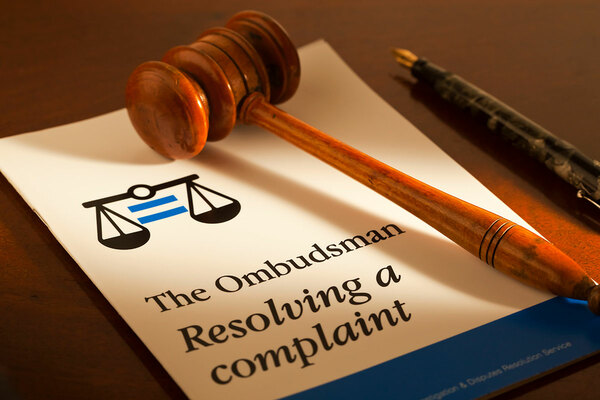You are viewing 1 of your 1 free articles
Housing Ombudsman to look at racism and social housing complaints in new investigation
The Housing Ombudsman has started work to look at how race affects social housing residents’ ability to access housing providers’ complaints process, Inside Housing can reveal.

The organisation’s chief executive, Richard Blakeway, told Inside Housing in an interview, which will appear in this month’s magazine, that the body had initiated research into the accessibility of complaints to see how race impacts tenants’ ability to complain about substandard accommodation or disrepair issues.
The decision comes after a long-running investigation by ITV News revealed that some tenants had felt delays in getting disrepair issues fixed was due to the their race.
In one case study, a mother of four from Kenya felt racism shaped her treatment from staff at her landlord, Hull Council. She claimed she was told that she “could always go back” after complaining about serious disrepair problems at her council house.
At the time the government said racism needs to be rooted out of social housing.
Hull Council said it took these allegations of racism “very seriously”, but refuted the contention that it had not responded to tenant’s repair requests (you can read the full response from the council here).
Reflecting on ITV’s investigation, Mr Blakeway said that some of the situations were “appalling for those involved” and that the ombudsman would be looking into this issue.
He said: “It’s going to take some time, but we have initiated work to look at the accessibility of complaints process, and are there groups who are finding particular issues when trying to access the complaints process.”
He explained that the plan had been partly inspired by work that had been carried out by the Dutch Ombudsman which looked into reasons why some groups in the Netherlands were making less complaints than others.
While Mr Blakeway would not come to any conclusions, he said he had a hypothesis that reasons could include language barriers, health issues and the digitisation of the complaints process.
He added: “We need to start thinking about how can we make the complaints process more accessible and will be considering that as part of our Complaint Handling Code.”
The work looking into racism and the social housing complaints process will be one of a number of pieces of work to be carried out by the Housing Ombudsman in the next 12 months.
The organisation also revealed that it would be carrying out two more Spotlight reports in the coming months, with the research looking into noise complaints and the relationships between managing agents and social landlords.
The latter report will be published early this year and follows a number of cases where the ombudsman has found maladministration at a landlord when a managing agent may have been involved in the response to the resident.
In these cases the ombudsman considers the landlord to be responsible for the relationship with the resident and is responsible for working with other parties to resolve issues, but the report will look into specifics and understand how social landlords can improve responses. This will focus on things such as repairs, cladding issues, estate management and heating networks.
This will be followed by a Spotlight report on noise complaints, which currently makes up 15% of the ombudsman’s claims. The report, due to be published in the summer, will look at noise caused by neighbours and works as well as noise attributed to poor soundproofing.
These two reports follow a series of Spotlight reports last year which covered issues such as cladding, repairs, and heating and hot water.
Mr Blakeway said: “Our work is rooted in the real-life experiences of residents and our objective is to ensure their complaints are treated fairly, and any lessons arising from them are taken seriously.
“Increasingly, residents want the lessons from complaints to be shared and acted on. There is also a strong appetite from the sector to learn from complaints to improve services. Our next two Spotlight investigations will look at two areas that can lead to immense frustration for residents.”
Sign up for our asset management newsletter
Already have an account? Click here to manage your newsletters











